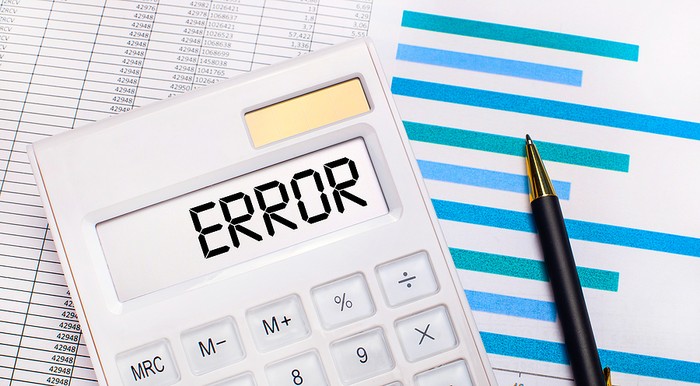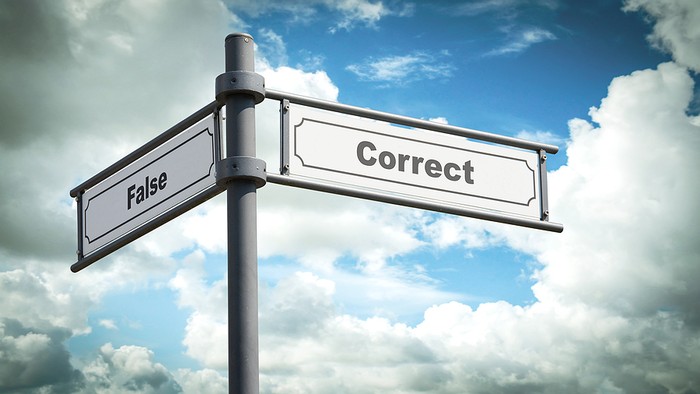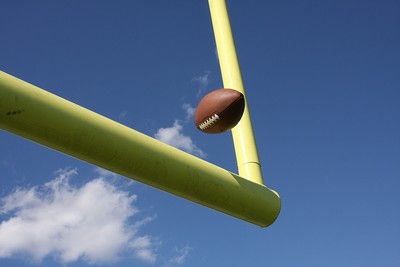 The dictionary definition of the word palpable that is relevant to this issue is “plain to see or comprehend” and so, in the simplest of terms, a palpable error can be described as a clear or obvious mistake.
The dictionary definition of the word palpable that is relevant to this issue is “plain to see or comprehend” and so, in the simplest of terms, a palpable error can be described as a clear or obvious mistake.
In this article, we will explain what the term means in the bookmaking sphere. We will also look at what you should do if you see a “palpy bet”, whether the bookmaker is legally obliged to pay your winnings and also look at some of the most high profile “palps” of recent years.
Palpable Errors In Betting
A palpable error in betting terms refers to a situation where a bookmaker has made a clear and obvious error that means the odds they offer are plainly incorrect.
What Do Palpable Errors Look Like?

Palpable errors usually the result of a simple human error and whilst it can happen in almost any scenario and market, in a whole range of ways, some common examples include:
- Numbers of odds the wrong way round – if a bookie has odds of 3/1 when most rivals are 1/3, this is probably what has happened and this would be a palpable error
- Players/teams wrong way round – if you see Man City at 12/1 and Burnley at 1/6, the bookie has obviously got the teams/odds the wrong way round
- Extra digit – if a golfer is priced between 6/1 and 8/1 to win a tournament with many firms but one has them at 70/1, it should be clear what has happened and again this would be a palp
Normally palpable errors are clear to anyone with even the most basic understanding of the sport or event in question (and if you don’t have that you shouldn’t really be betting on it!). Equally, they are typically so clear that even if you are a total betting newbie you should realise that the price is wrong. As in many walks of life, if not all, if something looks too good to be true, it probably is.
If you see the favourite for the weekend’s big race priced at 10/1 when you were expecting it to be 2/1, it might be easy to think you have simply found a very generous bookmaker. However, if all the other main bookies have the horse priced at around the 2/1 mark and a horse with a similar name is available with them at 10/1, you should realise what has happened.
Some palpable errors are clearer than others and in the case of a race like the one above, you might well not be aware of the expected odds, nor the prices at other bookies. However, if you see Roger Federer at 10/1 to beat the world number 400 in the first round at Wimbledon, whilst his opponent is 1/12, it would be immediately obvious that this is a palp.
Palp Or Pricing Error?

As we have just said, some palps will be far more obvious than others, so how is a punter to know, either when placing the bet or when contesting the issue afterwards, whether the erroneous odds are down to a genuine palpable error, or simply the bookie misreading the situation and getting their market wrong. The simple fact is that very occasionally there may be a grey area where it is not quite so obvious.
If a horse is available to back at 18/1 but other sites have it at 10/1, 12/1, or 14/1, is this a palp? How is a punter expected to know if the bookmaker meant to price it at 8/1 because they rate it more highly than their rival bookies or the 18/1 odds are correct and in actual fact, they fancy its chances far less than their rivals do?
IBAS
IBAS, the independent arbitration service that is typically used to help punters and bookies solve any issues they may have, has a post dedicated to pricing errors. In it, they state that should a case of a possible palp be raised with them they will “consider whether the error would have been discernible to a customer with a reasonable knowledge of betting and the sport in question”.
They state that they support the general principle of bookies being able to rectify obvious errors, be they caused by human error in the form of a “typo”, technological or software error, or anything else. However, they also very clearly state that the concept of a palpable error must not be a tool to “protect operators from errors of judgement or movements in the market they have failed to detect and respond to.” In addition, they add that with any cases brought to them they will seek to ensure that “the rule has been implemented reasonably and fairly” and also that they will “request evidence from the bookmaker” as appropriate.
In other words, a bookie cannot just cry “palp” to get themselves off the hook if they have been slow to react to a market move, new information about an event or have simply badly mispriced a market.
What Should I Do If I Suspect Odds Are A Palp?

There is a range of scenarios, each with different variables, that will impact what you could do and what we would generally advise doing. The first situation is probably the most straightforward and concerns a bet where you are sure the odds are incorrect, perhaps where the odds are the wrong way round in a tennis match.
In such a situation you have two real options (though each with a number of factors to consider): either take the obviously wrong odds and hope for the best, or you contact the bookie and let them know. We recommend the latter. If you do this your account will not suffer and there is a slim chance, if you ask politely, that the bookmaker may reward you with a small free bet.
Scenario 1: Bet Paid In Full
If you place a bet at the incorrect odds it is possible the bookie will pay out (it has happened in the past, as we shall see). They might not realise or, alternatively, they might just decide it is better to pay out than risk negative publicity of refusing to pay. This will probably depend on the circumstances of the bet and how much you wagered.
Scenario 2: Account is Limited
If they do realise, which they probably will, there is a high chance your account will be closed or at least limited in terms of the size of the stakes you can wager. You may feel this is unfair but it is very much within their rights and given you have tried to take advantage of an error, it is understandable too.
Scenario 3: Void Bet
They may void the bet before the game, match or race takes place. In some regards, this is the best outcome for you, other than actually getting paid at the incorrect, oversized odds. That is because otherwise you run the risk that they can allow the bet to stand but then only take action if it wins.
From their point of view and that of IBAS and the UK Gambling Commission (UKGC) this is not best practice but there really would be no easy way to prove a bookie had done this. If the bet loses, they keep your stake and claim either that the odds were right, or that they were unaware of the error, or that it is irrelevant – you made the bet and it has lost.
Scenario 4: Bet Settled at the Likely Odds
On the other hand, should the bet win, they could claim that as a palp it is void and simply return your stake. Alternatively, and this is what IBAS encourage, they should pay winning bets at what the odds should have been. The arbitration service state that they recommend that bookies who have offered a price in error should “resettle bets at the best price offered by any of their major or local competitors, to avoid any accusation that the incorrect price was advertised deliberately to attract additional trade.”
That is fine if you were happy to make the bet at the genuine odds because you are accepting the standard risk for the standard return. However, if you only made the bet because it was available at inflated odds, you are running the risk of losing the bet but probably only getting the “right” odds anyway. In addition, as said, win or lose, unless the bookmaker is totally unaware of the error, chances are your account will be in some way restricted.
What If You Are Not Sure if There is an Error?

If you see a bet that you believe to offer excellent value but are not sure if it is an error or not things are a little trickier. In the same way that football’s VAR is supposed to be only for “clear and obvious” errors but is often used when incidents are far from clear, there can be a lot of uncertainty when it comes to whether a bet is a palp or not. You could argue that if it is a grey area, it is not clear, obvious or palpable but as we see with VAR, there is always room for people to disagree.
Anyway, if you think you have found a bet that is great value but are not sure if it will be flagged as a palp, what should you do? This is a tricky one, because if you have genuinely found a great slice of value you probably need to act quite quickly. If the site you are using has simply failed to react to a market move quickly enough, or has, for example, been slow to realise that a team’s star player is being rested, the too-high odds will not stick around for long.
Check the Overround
We would suggest that unless there is a very clear reason to believe it is a palp, such as the ones we have listed, it is probably not. Another thing to check is whether or not the bookie you are using still has an overround based on the odds you are seeing. Online calculators enable you to easily work out the overround by inputting the odds for each of the selections. A typical book is 105% and upwards, giving an overround of between 5% (or even a little less at the best bookies on the biggest markets) up to 10%, 20% or even more.
This can be seen as the bookie’s margin and if they are still showing an overround then there is good reason to believe that the odds are legit. On the other hand, if the “book” totals less than 100%, this is a negative overround. This means that you could, in theory, bet on every horse, player or outcome and secure a positive return. If this is the case, you can be sure that one or more of the selections (almost certainly the one you are backing) is priced incorrectly and the bet will be palped.
Contact the Bookmaker
You could, in theory, contact the site via live chat to check but there are two clear problems with this. First, you will lose valuable time and the odds may naturally disappear. Second, the bookie may actually have made a genuine, non-palpable, pricing error, but simply amend the odd when you highlight the issue.
Ultimately you are probably best to rely on your own instincts and then, if needs be, arguing the case after. The vast majority of palps are obvious and bookies are surprisingly good and fair in honouring bets when they have simply assessed a market incorrectly. You will need to weigh up how sure you are the odds are legitimate, how valuable to you this particular betting account is (if they do close your account there are plenty more bookie-fish in the betting sea) and how happy you are to make the bet even if the odds used are the market-standard rather than the ones you have spotted.
Should Bookies Be Able To Palp Bets?

Many punters who are unaware of the term “palpable error” often feel it is very unfair when they first hear of it, often after they found out their bet has been made void or paid at reduced odds. It is a frustration that is easy to understand but ultimately punters should remember that sites are dealing with tens of thousands of markets and odds every day. Errors are inevitable and in order to be able to offer the best range of markets, as quickly as possible and still provide good-value odds, it is important that clear errors are not punished.
Some punters trot out arguments such as “I work in a shop and if we advertise something at a price that’s what we sell it at, even if it is a mistake”. Some shops may well do this but there is no obligation for a shop to honour a price, despite what many think. The retail regulatory authorities and advertising bodies may take action if they believe a misleading price is deliberately being advertised but, as with betting, where a genuine mistake has been made, shops are not punished for it.
Famous Palpable Errors
Palpable errors happen frequently, which is unsurprising given how many millions of bets are made every day. But whilst your mate sneakily trying to back Real Madrid to beat Elche at 5/1 instead of 1/5 won’t make the headlines, there have been some bets that have. One of the most well-known of them concerns a type of error we are yet to mention and that is one that is related to betting rules.
White Christmas Acca
 Back in 2010 Ladbrokes avoided a £7m payout on a white Christmas occurring at a number of locations around the UK. A 52-year-old man, Cliff Bryant, placed two £5 accumulators on snow falling on Christmas Day in a range of mainly northern towns and cities. When snowflakes began falling, Bryant was seeing £50 notes dropping from the sky. Imagine his disappointment on being told his bet would pay out just under £32, rather than the £7.1m he was “expecting” (we use that term lightly, though it is possible he genuinely believed the bet would earn him that massive sum).
Back in 2010 Ladbrokes avoided a £7m payout on a white Christmas occurring at a number of locations around the UK. A 52-year-old man, Cliff Bryant, placed two £5 accumulators on snow falling on Christmas Day in a range of mainly northern towns and cities. When snowflakes began falling, Bryant was seeing £50 notes dropping from the sky. Imagine his disappointment on being told his bet would pay out just under £32, rather than the £7.1m he was “expecting” (we use that term lightly, though it is possible he genuinely believed the bet would earn him that massive sum).
The issue was that the individual legs he tried to combine into an acca were related contingencies and, therefore, not eligible for an accumulator. He included, to list two examples, snow in Leeds at 5/2 and snow in Wakefield at 5/2, places that are around 12 miles apart. These are related contingencies, meaning the probabilities of the two happening are related, such that if it snows in one, the odds on it snowing in the other are not the initial price but, in fact, far shorter.
The logic is fairly simple and if we take it to an extreme it becomes even easier to understand. If, for example, it is 7/1 to snow in my back garden and 7/1 to snow in my front garden, few would claim it would be fair to expect to be paid at 49/1 for it to snow in both. In fact, the true odds would be 7/1, or at best the tiniest of fractions higher but not enough to generate a new price.
Whilst it was the shop’s error to accept the bet, IBAS agreed, righty, that this was a palpable error. The punter, who claimed he made the wager entirely in good faith, was paid as if his stake was split across all the individual legs as singles.
Denver Broncos at 750/1
 One time when a bookie did quite famously pay out on what was a genuine palpable error occurred recently, in 2018, a far happier story on which to report. The bet was placed with FanDuel, a US operator, at the sportsbook at Meadowlands Racetrack. As reported in the Denver Post, the company were not initially going to honour the bet, at least not at the full odds, but had a change of heart.
One time when a bookie did quite famously pay out on what was a genuine palpable error occurred recently, in 2018, a far happier story on which to report. The bet was placed with FanDuel, a US operator, at the sportsbook at Meadowlands Racetrack. As reported in the Denver Post, the company were not initially going to honour the bet, at least not at the full odds, but had a change of heart.
The decision to pay up was worth a very handy $82,000 to one New Jersey punter, whilst it is believed several other bettors also received payouts. With time running out, the Denver Broncos were two points behind when for unknown reasons odds of 750/1 were offered on them winning. The real odds, at least according to FanDuel themselves, should have been 1/6, with the Broncos having enough time to kick a field goal (worth three points) and being within range.
Anthony Prince snapped up those 750/1 odds and bet $110 on the Broncos, who went on to win the game 20-19 having been 12-0 down at the break. Quite how much Price knew about the concept of palpable errors is unclear but initially FanDuel refused to give him his massive winnings.
After consulting with the regulator in the nascent US market, the bookie decided the negative publicity, both for them and the industry, just wasn’t worth it. Given how much cash betting companies spend on marketing, $82,000 is small change; and what’s more, they probably got far more publicity from paying up than they could have got spending the same amount with an ad agency. A FanDuel spokesperson commented “Above all else, sports betting is supposed to be fun. As a result of a pricing error this weekend, it wasn’t for some of our customers.” They added “… this one’s on the house. We are paying out these erroneous tickets and wish the lucky customers well.”
Everton Fan Backs Liverpool … At 100/1
 Even more recently we saw another sports fan grab crazy odds and get paid, with an Everton fan cashing in Mo Salah’s brilliance. OK, the £500 payout isn’t quite in the same league as $82k but given he was backing Liverpool’s Salah to score against Everton we think this one is worth mentioning.
Even more recently we saw another sports fan grab crazy odds and get paid, with an Everton fan cashing in Mo Salah’s brilliance. OK, the £500 payout isn’t quite in the same league as $82k but given he was backing Liverpool’s Salah to score against Everton we think this one is worth mentioning.
Tweeting as FinKitch, the dedicated Toffee shared his 100/1 bet prior to the game, which was on Salah to score in both halves of the Merseyside derby. Other fans were amazed at the odds and tried to get on the bet as well but the price was long gone by then, the bookie realising what a terrible mistake they had made. Punters speculated online that the real odds would probably have been around 6/1 given just how good the Egyptian’s form was and how bad Everton had been.
Looking at past promotions from a range of bookies on that sort of outcome we suspect that they perhaps meant to enhance that to 10/1. In truth though, given this was an unusual market and given the betting site in question’s fondness for attention-grabbing promotions, it might have proved hard for them to claim this was a genuine palpable error that the average punter would have spotted. Equally, they may have thought for the sake of £500 it was worth paying out… perhaps to get publicity like this! The lucky Evertonian had a £500 win to drown his sorrows with, even if he did Tweet that it was dirty money!
Dirty money 🤮 pic.twitter.com/F5WzEW0pFY
— FinKitch (@FinKitch) December 1, 2021
Watch Your Decimal Points
 One of the strangest palps we have heard about occurred back in 2019 but only came to court very recently in July 2021. It is unclear at the time of writing what the final outcome was. It is hard to be sure whether the case is ongoing, or has been settled out of court under cover of a non-disclosure agreement.
One of the strangest palps we have heard about occurred back in 2019 but only came to court very recently in July 2021. It is unclear at the time of writing what the final outcome was. It is hard to be sure whether the case is ongoing, or has been settled out of court under cover of a non-disclosure agreement.
A millionaire punter (yes, our heart is bleeding for him too) sued Paddy Power after he believed he should have won almost £300k on a 16/1 shot. Initially, James Longley had tried to make a bet of £1,300 each way over the phone but due to some form of confusion, a bet of £13,000 was seemingly agreed by both parties.
It won and was initially paid out before the bookie decided it was an obvious error due to the incorrect stake. We have never heard of a palp of this nature before and without hearing the exact conversation it is hard to know the truth of the matter. Longley claims both parties agreed the bet whilst the bookie argues that no legal contract was formed as it is apparent the two actors involved were speaking about bets of different sizes. As far as we know the bet has not been paid but we will keep our eyes on the situation in case further information comes to light.
Is Court An Option?

One brave punter, a student nurse and certainly not a multi-millionaire, showed that taking on the big boys can pay off when he decided to contest a palpable error. Initially the bookie refused to pay and in truth, we feel their decision was fair. A punter backed Roger Federer to win a particular set 6-3 at massive odds of 2,000/1, staking 50p.
Julius Ndlovu should have won £1,000 but Hills instead voided the bet and offered him two £50 free bets. They suggested he could take things up with IBAS but instead he decided to take them to court … and won! The bookie probably decided that their legal expenses would be far greater than the winnings and didn’t turn up, meaning the punter was awarded the full value of his bet plus expenses!
Whilst this does show that court might be an option, in truth we think it is a move only for the bold and the brave. Should the bookie have contested this case there is every chance they would have won, not least because the 2,000/1 odds were a very clear mistake that any sort of tennis fan would see. Nonetheless, if you are feeling hard done by, this could be an option, especially if you are prepared to put the effort in to understand the legal process and the amount of the win is not so big that the bookies will simply have to fight the case.
